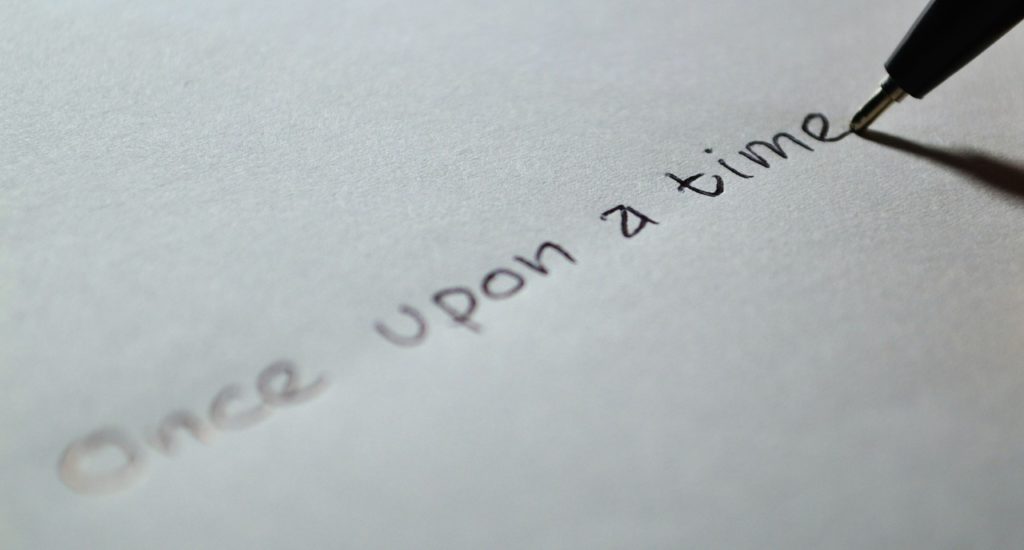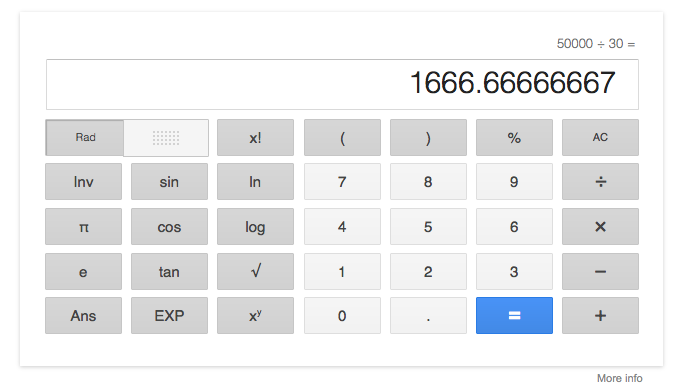National Novel Writing Month (or NaNoWriMo for the initiated) is a 30-day crash course in what it’s like to be a writer.
From November 1 to November 30, you’re going to….
- Forsake your relationships
- Let the laundry pile up
- Neglect to shower
- Andddddd………
- WRITE A BOOK
November is a magical month because writers from all over the world unite with the common goal to write 50,000 words by the end of the month.
But what if you’ve never written a book before?
What if you’ve not written more than an email, shopping list, or dirty haiku since school?
Can you still join in the fun (and pain) of NaNoWriMo? Can you still hit 50,000 words and have an honest-to-god BOOK by the end of the month?
You bet your bottom bookmark you can!
Here’s How To Prepare For NaNoWriMo If You’ve Never Written A Book Before
1. Understand the aim of NaNoWriMo
First time writers will balk at the idea of writing a novel in a month.
“I can’t do that!” I hear you say. “I’ll have more luck resurrecting Winston Churchill and convincing him to date my German nephew.”
Hold on there.
You don’t have to write a novel in a month.
National Novel Writing Month is a catchy name and it’s certainly a lofty ambition but it’s not really about writing a novel in just thirty days (at least not for me).
It’s more about…
- Having fun
- Challenging yourself
- Forging the habit of writing every day
- Getting a daily sense of achievement because you hit your word count
- Getting a sense of achievement at the end of the month because you wrote something
50,000 words is actually kind of short for a novel. That’s more like a novella in my book. Although you could certainly publish something of that length (it’s become easier since self-publishing happened).
Also, you don’t just bang out 50,000 words and that’s it. Then you’ve got to revise and edit the book. That takes time. For me, the editing phase actually takes twice as long as the writing phase.
NaNoWriMo isn’t about producing the next Catch-22 or The Da Vinci Code.
Just focus on the work at hand. Take each day as they come. And you’ll get a glimpse into what full-time writers do every single day for years on end. If you enjoy it, welcome aboard. You’re a writer now!
2. Set a word quota and draft your battle tactics
Writing is war.
An extremely benign war where the only chance of injury is carpal tunnel. But war nonetheless. And every war needs a battle plan.
50,000 words sounds like a lot. But it sounds much more approachable when you break it down.
I’m a writer not some kind of mathematician so I had to use a calculator for this:
That’s your daily word count.
All you have to do to hit 50,000 words by the end of November is to write around 1700 words a day.
Of course, you might need to take one day off per week and allow for life getting in the way (e.g. spouse finding out about your affair, children needing to be bailed out of jail for possessing cocaine with intent, the annual skee ball tournament) so you might want to ratchet up your daily word count to, say, 2,000 words.
If you’re having a good day, you hit 2,000 words, and you still have time and energy for more, knock yourself out. That’s insurance for the inevitable crappy days that lie ahead. There will be some days where getting past 500 words will be a massive struggle.
You could also set yourself a weekly quota to allow for some days being worse and some days being better than others. My weekly quota will be 14,000 words.
Having a weekly quota can be easier to follow than a daily quota. It’s the same way when you’re dieting. I personally have way more success with diets that track weekly calories rather than daily calories. It’s a lot harder to mess up that way.
3. Carve out some time
You won’t find the time to write by chance.
If you’re just going to wing it and wait for the “muse”, you won’t hit your goal of hitting 50,000 words by the end of the month.
Real writers set a time that stays the same each day and they make writing a habit.
I know you’re busy but if you want to get that sweet feeling of achievement come November 30, you’re going to have to schedule in some specific writing time.
I’m super busy in November. This is what my month is going to look like:
- Beginning of November = Fly home to England from Japan. Anyone who has flown long-distance from East to West and obliterated 9 time zones in 13 hours knows that the jet-lag is nasty. It will take a couple of weeks to completely adjust.
- Early November = Start new job, working from 9-5 and allowing at least 1.5 hours of commute time.
- Middle to late November = Travel across the UK in search of a new apartment.
- All through November = Continue my side hustles, continue learning Japanese intensely every day, and continue following a rigorous daily exercise routine.
On top of all that, I’m still going to make sure that I hit at least 50,000 words by the end of the month. It will mean waking up at 4am during the week but so be it. You gotta commit to this shit.
So before you start writing, figure out when you are going to write. Then make that time sacred and show up every single day. Even if you’re sleepy. Even if you’re hungry. Even if you’re super busy. You can do it. We got this!
4. Give yourself permission to write crap
I learned about this technique from Viktor Frankl’s logotherapy after reading Man’s Search For Meaning.
Logotherapy bases its technique called “paradoxical intention” on the twofold fact that fear brings about that which one is afraid of, and that hyper-intention makes impossible what one wishes […] In this approach the phobic patient is invited to intend, even if only for a moment, precisely that which he fears.
This is the cure for writers’ block.
We are going to intend that which we fear.
And what do writers fear? Writing crap.
Whenever I find myself staring at the blinking cursor for hours on end or pacing the room in agitation because I cannot write, it’s because I’m thinking too much. I’m self-editing as I go along. I’m worried about what people might think of what I write. I’m worried if I’m good enough.
Forget all of that noise.
When you’re writing, your only job is to get those words down on the page. Get your 2,000 words down, then clock off for the day.
And the best way to stop writers’ block is to give yourself permission to write the biggest steaming pile of crap the world has ever seen.
Once you resign yourself to writing crap, you’ll surprise yourself by how good you really are. Plus, if it sucks you can clean it up later. Much later.
5. Understand story structure and write a brief outline
Everything you need to know about story structure is contained in this clip of a Kurt Vonnegut lecture:
If it’s your first time writing anything, there’s no need to overthink story structure beyond what Vonnegut says above. But you might find it useful to read The Snowflake Method by Randy Ingermanson. It’s one of the best books on story structure I’ve ever read. It’s super simple to understand and fun to follow along.
If you want to make your time during NaNoWriMo much easier, I’d suggest picking up a copy of that book and taking it to your favourite cafe or somewhere quiet with a pen and pad of paper. You can sit down and read it through in a relaxed afternoon and you’ll be able to plot your entire book scene-by-scene. That way, when it comes to writing, you won’t have to have that dreaded thought, ‘What do I write about?’ or ‘What happens next?’ You’ll already know.
6. Understand what makes a scene compelling
Aaron Sorkin puts it best when he says that story is all about intention and obstacle.
Intention – What do the characters want?
Obstacle – What’s stopping them from getting it?
We can also introduce another important element called tactics.
Tactics – How are the characters going to overcome the obstacles to fulfil their intentions?
A sentence, a paragraph, a scene, a chapter, a story is compelling if it constantly puts the pressure on the characters. Make your characters really want something and then make it almost impossible for them to get it. Boom. That’s a story.
7. Tell people what you’re doing and enlist the support of others
As well as putting the pressure on your characters, you’ve also got to put the pressure on yourself. If you are the only person holding yourself accountable, your chance of success dwindles. But if your spouse and your children and your friends and your coworkers and even people who follow you on Twitter know what you’re doing, you will feel much more pressure to make sure you hit your goal. Heck, even telling your dog or cat about what you’re doing is going to make you more likely to succeed. Do you really want Fluffy to be disappointed in you?
So talk about NaNoWriMo. Post your daily word count online. Tell everyone why you are doing it. They will enquire about your progress. They’ll ask how much you wrote that day. You might even inspire them to join in. It’s a lot easier to hit your goal if you’re in it with someone else. You can motivate each other.
Go over to the NaNoWriMo website and sign up.
You’ll find tons of goodies over there like….
- An awesome forum filled with every writing question you need to know
- A word sprint machine that also gives you writing ‘dares’
- Tons of badges that correspond with your progress
- Motivational pep talks from famous writers
8. Stock up on writing aids
After years of writing, I’ve finally found a routine and a set of tools that work for me. Your routine will likely be different from mine. However, if you haven’t written anything before, you probably don’t have a routine or favourite tools. So feel free to copy mine. It’s the same routine that helps me bust out 10,000 words on a good day and 2,000 words on a bad day.
My writing aids:
- Coffee – Typically black. Sometimes I mix butter in there and skip breakfast. The butter blunts my appetite and keeps my energy stable (plus it’s tasty). Then I eat after writing. Full stomach = foggy head. Empty stomach + coffee = creativity. I usually go through 3 cups a day (1 before writing, 1 during writing, and 1 another time during the day).
- Green tea – Japanese stuff: sencha, genmaicha, gyokuro. This contains l-theanine, which stops the jitters and crash from caffeine. It also makes you calm and creative. Plus it’s healthy, filled with antioxidants, and suppresses your appetite.
- Noise cancelling headphones – I can’t always find somewhere quiet to write. Sometimes I write on airplanes and trains. Sometimes I live in noisy cities. Sometimes I have other people around me. So noise cancelling headphones are a must for blocking out the world and getting immersed in my stories. I recommend Sennheiser HD 280 Pro Headphones.
- White noise and binaural beats – You can find tons of great white noise and binaural beats channels on YouTube. Experiment and find what works for you. Sometimes I use brain.fm and other times I listen to rainy mood. Adjust based on your personal preference.
- Meditation – I like to do Wim Hof breathing before writing.
9. Have fun!
This is the most important part.
You’re doing something different and creative. So make sure you actually enjoy it.
You’ll probably feel uncomfortable at many points because it’s so new for you. But try to enjoy the process anyway. Some of my best memories in life involve the frustrating beginner phase of any new endeavour. Whether it’s learning a language, learning to shoot a gun, or learning how to play chess, the feeling of acquiring a new skill is exhilarating.
Write outrageous truths.
Write brutal tragedies.
Write hilarious lines.
Just write.
And enjoy.
See you on the other side 🙂
P.S. If you found this article helpful, you might want to check out a few of these articles on the subject of writing:






